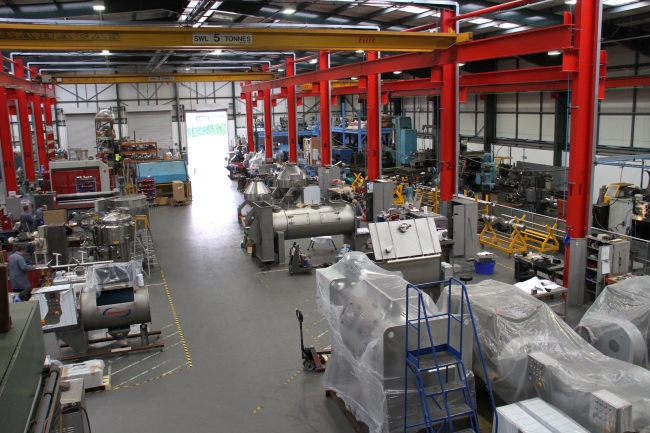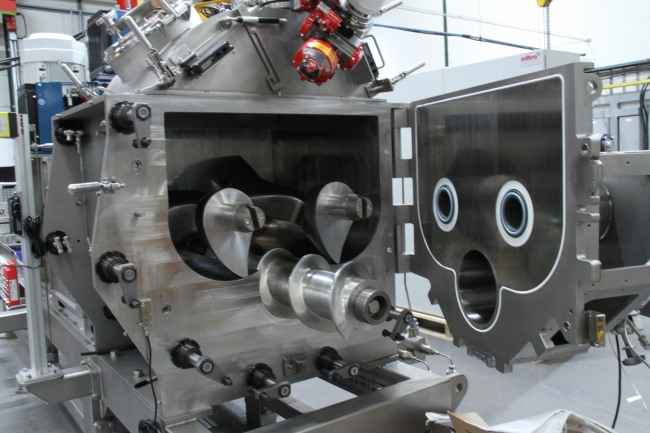5 minute read
Opinion: Winning the battle between productivity and process
When asked about what changes manufacturers expect in 2021 relative to 2020, interestingly, most (54%) expect to see a moderate or significant improvement in productivity. Manufacturers may not be looking to increase productivity by cutting the workforce, rather there is a growing interest in investing in the skill-sets of full-time staff. Grant Jamieson, managing director at Winkworth Machinery shares his thoughts on how to supercharge your workforce to upscale productivity.
In the beginning
In any SME, each individual must know their job role and must be able to think and make decisions across many portfolio dimensions of the business. The ratio of ‘hats per person’ is probably in the order of 4 to 6 and, as a start-up, this is more likely to be nearer to 1 to 20.

As manufacturers focus on productivity, Grant Jamieson says there are clever ways to supercharge your workforce to upscale productivity / Picture: Winkworth
As the company grows, the business owner, who is initially fully in-tune with the business, becomes more and more distant from its day to day management. Ongoing development of the business results in the employment of staff, who are delegated to and empowered. The business owner needs to rely on staff, so selects and develops key personnel in-role, sharing insight and knowledge. This initial layer of delegation is well-informed, empowered and developed to be capable. Nothing is written down and experience is transferred by word-of-mouth.
As growth continues more formality is necessary, so the first layer is delegated to, which in-turn delegates less effectively to a second and onto a third layer and so on. To account for all of the circumstances that may arise and the ‘needs’ of the corporate customer who demands formality and evidence of control, this layering of activity requires definition and procedure.
So, to create effective procedures to control those who are delegated to, administrators are required who have the skills to define processes and procedures. The business employs administrators and procedures are created.
By now the business owner has moved far away from the coalface, assuming that all staff are acting as they would act in any given circumstance. However, staff act according to the given process, or procedure that they have been given – essentially a pre-set framework. That framework does not prepare them for lateral thinking outside of the range of inputs that have been previously identified. As a result, administrative growth supersedes business growth going forward.
Constraining free thinkers
Clearly, this type of behaviour is satisfying for administrative leads, bureaucrats and people who gain satisfaction in defining processes they want others to follow. However, it becomes unrewarding for agile freethinkers and innovators who want to use their own initiative and can see simpler ways of doing things which avoids or challenges that administration.
In a recent BBC interview, entrepreneur Greg Jackson, founder and CEO of Octopus Energy (valued at £1.4bn), pointed out: “There is a tendency for large companies to infantilise their employees and drown creative people in process and bureaucracy” – https://www.bbc.co.uk/news/business-56130187.
It is only in the midst of a crisis, such as COVID-19 or the Brexit situation that companies become forced to reflect and assess exactly what people are actually doing in their working environments and realise how much the administration tail is wagging the dog. The challenge between productivity and process in SMEs is a constant battle that must be won. SMEs must be strong to stand against overly bureaucratic customers who themselves have become procedural behemoths, demanding matching person-to-person skill sets either side of the contract. This type of ‘corporate mirroring’ creates limited value, leading to loss of agility and innovation and will create stagnation and long term antigrowth. Entrepreneurs within organisations will rebel at the administrative burden as it becomes unproductive and a growth inhibitor.

Grant says the thinking activity in the people manufacturers employ is the greatest asset and where the greatest value can be added / Picture: Winkworth
Reset for productivity
At the recent Make UK PwC Executive Survey 2021 – Building Agility in Manufacturing event, the key message that I took away from the seminar was emphasised by Lord Hammond. He specifically expressed that “the UK must not see itself as a rich nation anymore. It must see itself as a country that must compete for every pound it wins in business. Its productivity must go up and in order to compete on the world stage, productivity must improve”.
In my own company, I am challenging all areas from the classic factory based 5S eliminate waste initiatives, that are perhaps more obvious to manufacturers, to the bureaucratic waste which is often hidden and invisible. Addressing the process behaviours that we have embedded here at Winkworth has been a revelation. Staff who have been ‘required’ to do things that they did not really understand the rationale behind, are now relieved that they no longer have to carry out those tasks which did not seem sensible to them; on this basis, it is evident a productivity opportunity exists. Indeed, our ability to divert attention from non added-value activity into value-added is real and purposeful, which in-turn is increasing our overall productivity. Not only has added-value activity increased, but staff are also happier now that they are doing more meaningful activities throughout their working day.
In a small company, all round knowledge and understanding of the business is key. As the company grows, the knowledge and understanding of the purpose of the business and how it meets customers’ requirements becomes diluted. Many of the productivity gains identified by manufacturers in the Building Agility in Manufacturing report, will be from growing their people personally, teaching them, investing in them and their skill sets, and engaging their knowledge and understanding.
It is only through genuine understanding of the purpose of your role and the value it adds to the overall proposition for the company and ultimately the cost benefit of adding that value, will individuals really create their fullest added value. Performing a task without understanding the purpose is no longer acceptable – machines and robotics in factory environments have consistently replaced non-thinking activities. Therefore, it is the thinking activity in the people we employ that is our greatest asset and where we can add our greatest value. We need productivity gains through understanding and knowledge and to chase away the notion that writing a procedure or creating a defined process is the only way to create or add value.

Grant Jamieson, managing director at Winkworth Machinery